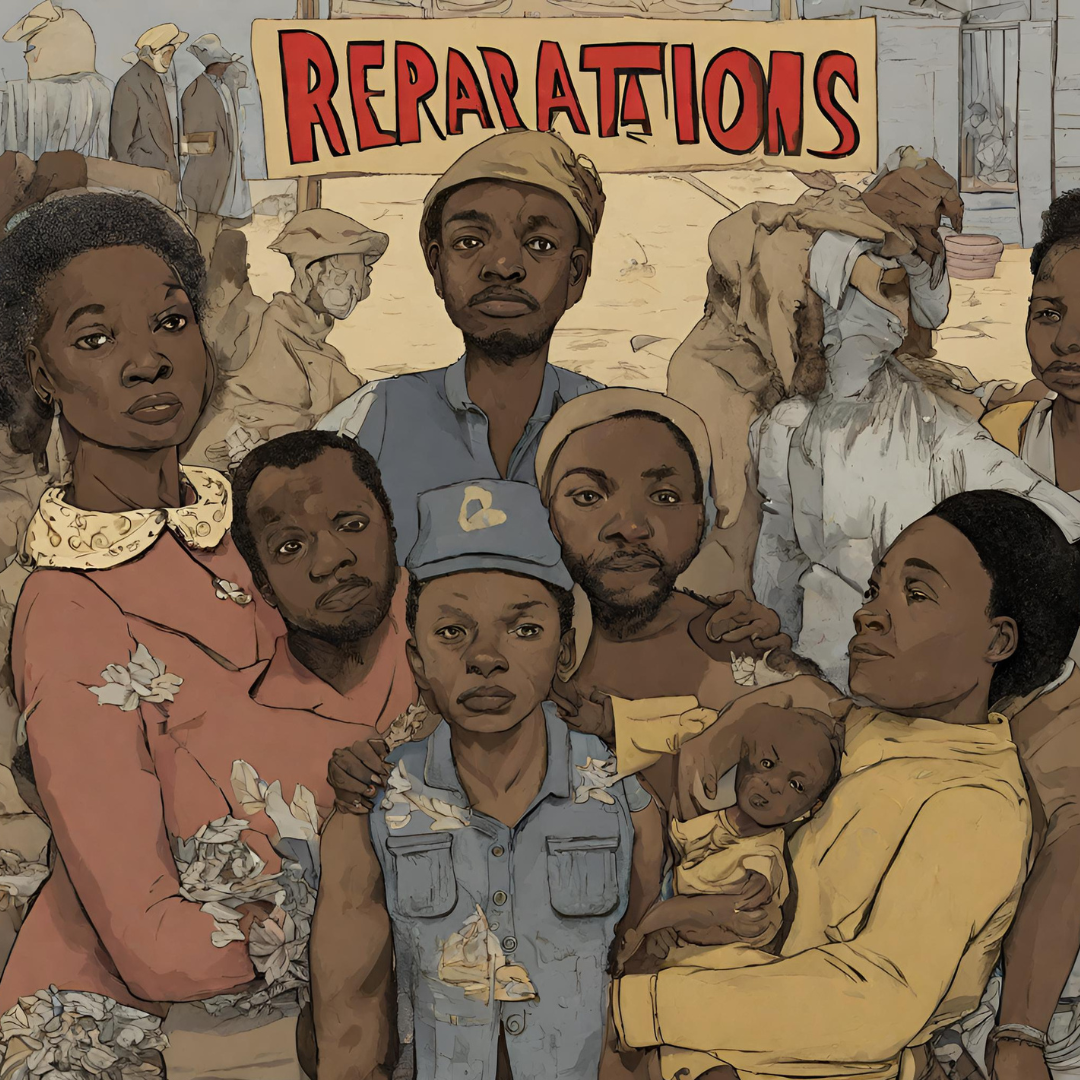
Written by Kazemde Ajamu
Forging Alliances and Conquering the Congressional Maze for Justice
Let’s talk about a game where the stakes are nothing less than the scales of justice themselves. We’re not just building coalitions here; we’re stitching together powerhouses of influence to push through the thickets of Capitol Hill’s maze. It’s about mastering the political chessboard, plotting moves with Machiavellian grace, and pulling the strings in the puppet show of legislation. This isn’t your polite hand-shaking affair; it’s a strategic battleground where only the savvy and relentless emerge victorious. Are you ready to navigate the treacherous corridors of Congress and claim justice as your prize? Buckle up; it’s going to be a wild ride.
Kazemde ajamu – The urban politician
The discussion around reparations for African Americans is not just a moral and historical debate but also a complex political challenge. The pathway to passing a reparations bill in the United States Congress requires not only a majority in both the House of Representatives and the Senate but also a broad consensus across multiple demographics and political affiliations. Given the current composition of Congress, with a minority of Democratic representatives and senators, the task appears daunting but not insurmountable. Here’s an expanded look at how the conversation could evolve, taking into account the intricacies of the American political landscape.
Developing a Unified Reparations Plan
Before any political maneuvering, the first step is to forge a widely accepted reparations plan within the African American community. This plan needs to articulate clearly the rationale, the beneficiaries, the form reparations should take (e.g., financial, educational, community investments), and funding mechanisms that are politically feasible. The challenge here is immense, as it involves balancing diverse viewpoints and interests within the community while also presenting a proposal that can gain traction in a broader political context.
Engaging Beyond Black Congressional Districts
While the 58 Black Representatives and 3 Black Senators play crucial roles, the real political battleground lies in districts and states not directly controlled by African American voters. Identifying Democratic-held districts with significant Black voter populations but represented by White Congress members is a strategic starting point. These districts potentially offer leverage to influence representatives by making the case that their electoral success depends on addressing the concerns of their Black constituents.
Building Cross-Demographic Alliances
Achieving the necessary majority in Congress will require building alliances beyond the African American community. This means engaging with Hispanic, Asian, and White voters in districts critical for securing the additional votes needed. Crafting a message that resonates across these demographics, emphasizing justice, equity, and the long-term benefits of reparations to American society as a whole, is essential. The complexity of this task cannot be overstated, as it requires bridging diverse interests and perspectives.
Navigating the Senate’s Higher Hurdle
The Senate, with its broader state-wide constituencies and the need for a supermajority to overcome filibusters, presents an even more formidable challenge. Success here demands a nationwide strategy, targeting states where Senators might be swayed by public opinion and pressure from a coalition of voters from various racial and economic backgrounds.
The Role of Republican Support
While the discussion often focuses on the Democratic Party, gaining some level of Republican support could be crucial. This involves identifying moderate Republicans who may be open to the idea of reparations under certain conditions or framing the issue in ways that resonate with conservative values, such as justice and rectification of historical wrongs.
Learning from State-Level Efforts
California’s exploration of reparations provides a valuable case study. Observing how one of the most liberal states addresses the challenges of consensus-building, funding, and implementing reparations could offer key lessons and strategies that might be applied at the federal level.
The Political Realities
The suggestion to withhold votes from the Democratic Party to force action on reparations risks alienating the very representatives who might be most sympathetic to the cause. A more effective approach may involve targeted political engagement, voter mobilization, and strategic alliances to shift the balance of power in Congress gradually.
In conclusion, navigating the political landscape to achieve reparations is a multifaceted challenge that requires a sophisticated and strategic approach. It demands unity within the African American community, the building of broad-based coalitions, and a pragmatic engagement with the realities of American politics. While the path is undoubtedly difficult, the pursuit of justice and equity through reparations remains a noble and essential endeavor.

